
Atlanta Jazz Festival…2010
The two day jazz festival was once again upon the city of Atlanta and over the course of those days, thousands gathered from around the country and the world once again in Piedmont Park for the May 29th & 30th celebration of jazz. Walking through the entrance to the park at 10th & Charles Allen one felt the excitement of the gathering of fans in attendance.
This year the 31 Days of Jazz was created as a signature program of the Atlanta Jazz Festival and during the month of May, the festival partnered with restaurants and social establishments to celebrate this classic art form. The program implemented the 31 Days Passport Program to provide an interactive method for AJF fans to personally connect with the Festival and its partner venues.
Heralding this festival’s performances were local, national and international favorites Diane Schuur with Jason Marsalis, Groove Project, Hiromi & Stanley Clarke, Hudson on Bass, Jacob Deaton Trio, Jay Norem & Keith White Quartet, Joe Gransden Big Band, Julie Dexter, Kathleen Bertrand, Madoca & Co., Marcus Miller with Christian Scott, Metropolitan Atlanta Youth Wind Ensemble Jazz Band, Non-Movement Movement, Our New Dimensions, Rialto Jazz for Kids All Star Big Band, Spyro Gyra, Steven Charles Band, Swing Streets to Swing Beats with Esperanza Spalding and Raydar Ellis, Trombone Shorty, and William Green & the Magic Dream Band
The sponsors of the jazz festival were American Family Insurance, Anheuser Busch, Atlanta Fulton County Arts Council, Charles Loridans Foundation, Coca-Cola Company, Coca-Cola Enterprises, Fulton County Arts Council, Georgia Lottery, High Museum of Art Access Program, Kendeda Fund, Northern Trust, Publix, Smoothie King, Turner Broadcasting System and the Zeist Foundation. #AJF40
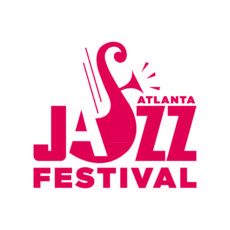
![]()
#preserving genius
More Posts: festival,forty,free,history,jazz,music,tradition,years
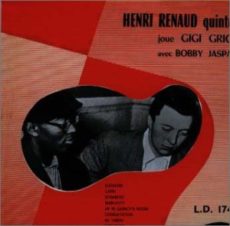
Daily Dose Of Jazz…
Henri Renaud was born April 20, 1925 in Villedieu-sur-Indre, France. His styles was evolutionary over the decades he was musically active and represented the swing, bebop and cool styles. His international renown came when he served as an ensemble-organizing point-man for visiting jazz performers from the United States.
Moving to Paris in 1946, Renaud established a career as a jazz pianist and joined tenor-saxophonist Jean-Claude Fohrenbach’s combo. During 1949 and 1950 he accompanied Don Byas, James Moody and Roy Eldridge. In 1952 he performed at various times with Lester Young, Sarah Vaughan and Clifford Brown.
Henri would go on to record several times with Brown as well as with Milt Jackson, J. J. Johnson, Al Cohn, Oscar Pettiford, Max Roach, Frank Foster and Bob Brookmeyer. In 1954, he visited the United States and recorded during that time.
He became an executive for French CBS’ jazz division in 1964 and for the most part stopped performing, though he occasionally worked as a film composer. Pianist Henri Renaud passed away in Paris, France on October 17, 2002.
Sponsored By
![]()
#preserving genius
More Posts: piano
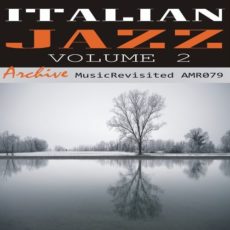
Daily Dose Of Jazz…
Glauco Masetti was born on April 19, 1922 in Milan, Italy and was an autodidact on reed instruments as well as a classically trained violinist, attending the Milan and Turin conservatories.
In the late 1940s he worked with Gil Cuppini for the first time, an association that would continue well into the latter part of the 1960s. He worked often as a session musician in the first half of the 1950s, with Gianni Basso and Oscar Valdambrini among others.
He led his own ensemble from 1955, and played with Eraldo Volonté and Chet Baker. In the Sixties, he also played with Giorgio Gaslini during that decade. Clarinetist and alto saxophonist Glauco Masetti passed away on May 27, 2001 in Milan.
Sponsored By

![]()
#preserving genius
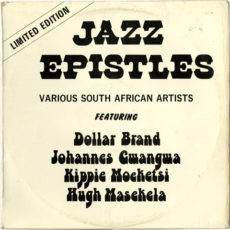
International Day Of Jazz 2017
The Jazz Epistles were South Africa’s first important albeit short lived bebop band. Inspired by Art Blakey’s Jazz Messengers, its members included Dollar Brand (later known as Abdullah Ibrahim) on piano, Kippie Moeketsi on alto saxophone, Jonas Gwangwa on trombone, Hugh Masekela on trumpet, Johnny Gertze on bass, and Early Mabuza or Makaya Ntshoko on drums. The group became famous after performing in the jam sessions called Jazz at the Odin in the Odin Theater in Sophiatown.
In 1959 just before breaking up, the Jazz Epistles recorded the first album by a black South African band, Jazz Epistle, Verse 1. That same year, composer Todd Matshikiza’s musical King Kong became a hit in Johannesburg. It used a jazz score to tell the tragic story of South African heavyweight boxer Ezekial “King Kong” Dhlamini. Miriam Makeba, members of the Manhattan Brothers, and the Jazz Epistles musicians were involved in the production.
The 1960 Sharpeville Massacre marked the beginning of an era of vicious apartheid and greater repression of African culture. After Sharpeville, the government imposed a State of Emergency, made mass arrests, issued thousands of bannings, and put activists who challenged apartheid laws on trial. The repression extended to African arts. Jazz was an expressive force seeking musical and social equality. The apartheid system could not tolerate it. Performances were not allowed, jazz was prohibited from radio broadcasts, and prominent musicians were threatened.
When the producers of King Kong received invitations to perform in Europe, the South African government, believing the musical would be helpful propaganda, issued passports to African performers who otherwise would not have had opportunities to leave the country. Members of Jazz Epistles welcomed the opportunity. Most of them found the freedom and the contacts with other musicians in Europe irresistible and chose exile over returning. Thus many of the most adventurous strains in South African music were pursued outside its borders for several decades.
Following a 56-year hiatus, in June 2016 several members played two reunion concerts in Johannesburg. This year, on April 30th at Chastain Park, in honor of the International Day of Jazz and the 40th anniversary celebration of the Atlanta Jazz Festival, the Jazz Epistles will play one of seven reunion concerts schedule for North America and Europe, in remembrance of the 40th anniversary of the Soweto uprising is being celebrated in music. Original Jazz Epistle members Hugh Masekela and Abdullah Ibrahim will be performing along with a host of other performers. Tickets are only $40.00 for this historic reunion. #AJF40

![]()
#preserving genius
More Posts: festival,forty,free,history,jazz,music,tradition,years
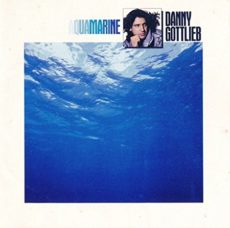
Daily Dose Of Jazz…
Daniel Richard Gottlieb was born in New York City on April 18, 1953. Taking lessons from Mel Lewis and Joe Morello, he graduated from the University of Miami in 1975. He became a member of the Gary Burton Quartet in 1976 with Pat Metheny, and then was one of the original members of The Pat Metheny Group from 1977–1983. Bassist Mark Egan, who was also in Metheny’s first group, teamed with Gottlieb and formed the band Elements. In 1984 he was a member of the Mahavishnu Orchestra led by guitarist John McLaughlin.
Gottlieb performed or recorded with dozens of musicians not limited to Bill Evans, Branford Marsalis, Jacqui Naylor, Chick Corea, Randy Brecker, Stan Getz, Clark Terry, Ernie Wilkins, Gerry Mulligan, Joanne Brackeen, Herbie Hancock, Hiram Bullock, Booker T and the MG’s, Hubert Laws, Lew Soloff, Jim Hall, Jimmy Haslip, Nnenna Freelon, John Scofield, Bobby McFerrin, Kenny Barron, Larry Coryell, Eddie Gómez, Mark Murphy, Miroslav Vitous, Naná Vasconcelos, Ali Ryerson, Nguyên Lê, Rufus Reid, Sting and Wayne Shorter, as well as the Carnegie Hall Jazz Orchestra, NDR Big Band, Trio, Vanguard Jazz Orchestra, Gil Evans Orchestra and WDR Big Band.
In 2004 he became the drummer for Gary Sinise’s Lt. Dan Band. He has performed on over 400 albums, earned nine Grammy Award nominations and four wins, is on the faculty of the University of North Florida as a full-time Professor of Jazz Studies. Drummer Danny Gottlieb has made over ten instructional DVDs, wrote the textbook The Evolution of Jazz Drumming, and continues to perform and record.

#preserving genius
More Posts: drums


